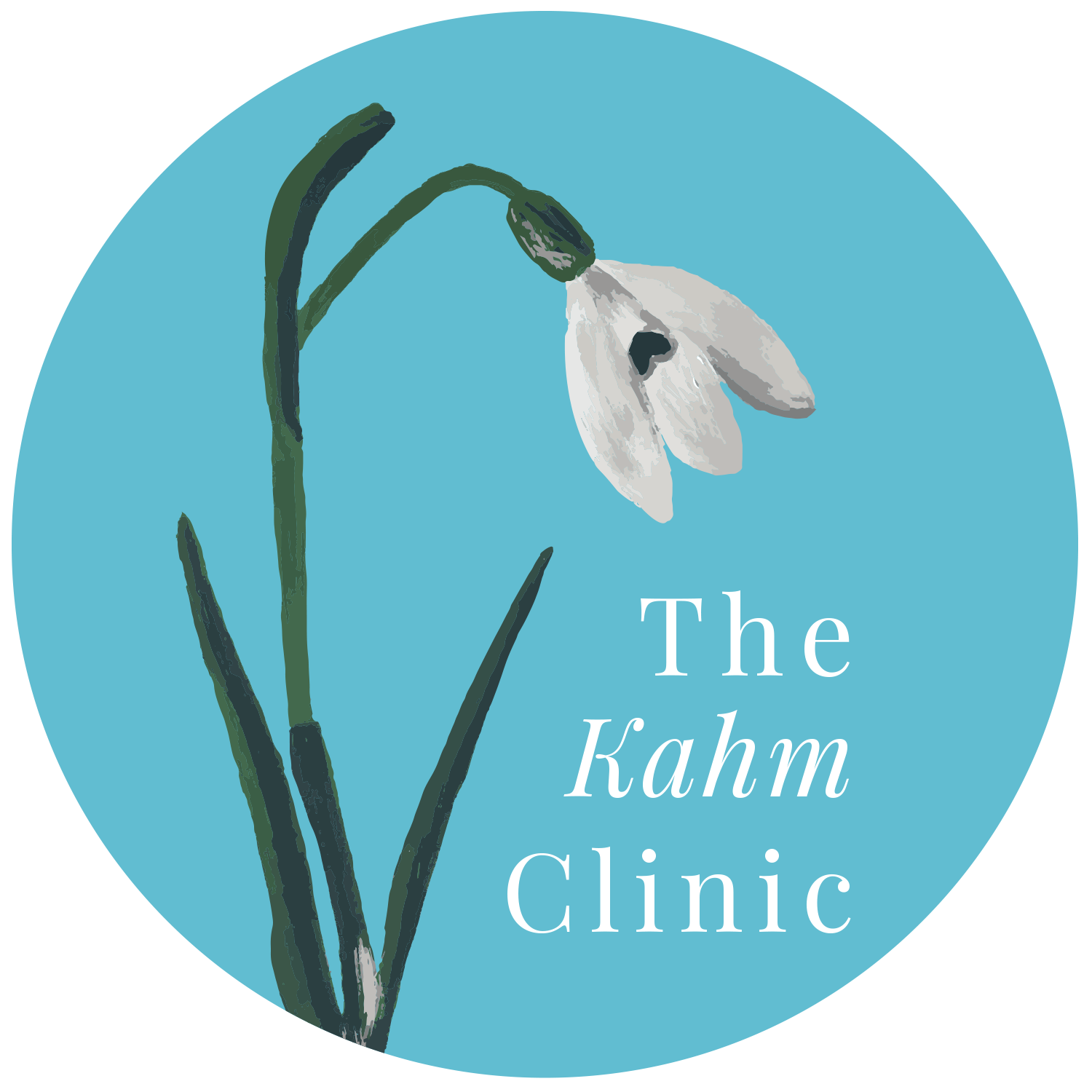The Issue with "Eat Less and Exercise More"
As we reach the end of 2021, many of us are thinking about our goals for the new year. When it comes to weight management, we’re often told that, if we want to lose weight, we just need to “eat less and exercise more.” To an extent, this statement is true, but it doesn’t hold up for every situation. In a recent YouTube video, nutritionist Elaina Efird, RDN, CD, CEDRD, CSSD digs deeper into this concept with a case study.
Understanding Your Total Daily Energy Expenditure
First, let’s look at how the calories you consume (eating) and burn (exercising) impact your weight. At The Kahm Clinic, we measure your resting metabolic rate (RMR), or the number of calories your body burns doing absolutely nothing. To figure out your total daily energy expenditure (TDEE), you also need to consider the thermic effect of food (TEF), or the calories your body requires to break down food, as well as the calories burned during physical activity (PA). The equation below shows the calories your body requires during the day — from resting and basic movement (like getting out of bed in the morning) to eating and exercising.
TDEE = RMR + TEF + PA
So if you eat the exact same number of calories as your TDEE, you will maintain your weight. If you want to lose weight, you need to create a calorie deficit. For instance, your TDEE minus 300 calories is a sufficient calorie deficit for fat loss. Contrary to the strict guidelines of many fad diets, you don’t want to create an extreme deficit of 1,000 calories — and the case study below shows you why.
The Kahm Clinic Case Study
This female patient is 5 feet, 9 inches tall. She had no history of disordered eating and wanted to lose weight but lacked a basic understanding of nutrition. Prior to seeing us, she ate an average of 1,500 to 1,800 calories each day. She was active and practiced cardio-based exercising for about an hour, four to five days per week. Despite her efforts, she wasn’t seeing any weight loss, which prompted her trip to The Kahm Clinic.
At her initial visit in June 2019, she weighed 204 pounds. Her lean mass was 127.9 pounds (with 58 pounds being muscle mass), and her fat mass was 76.1 pounds. Her RMR was 2,400 calories per day, and, combined with her basic movements and exercise, her TDEE was 3,100 calories per day. Because she wanted to lose weight, we created a small calorie deficit and recommended that she eat 2,700 to 2,800 calories per day.
She came in for appointments every few weeks and told us she was eating the recommended daily calories. However, she failed to report that she had actually increased her exercise, adding in long weekend walks with her dog and hikes with friends. She didn’t think these activities counted as exercise because she wasn’t “going to the gym.”
“The reason this information is important is because it significantly increased her total daily energy expenditure,” Elaina explains. Her daily needs reached 3,400 calories — or maybe even higher! — which meant the calorie deficit we created by recommending she eat 2,700 or 2,800 calories was now too high.
Why “Eat Less and Exercise More” Doesn’t Always Work
When we measured her body composition again in November 2019, we saw a decrease in lean mass, a decrease in muscle mass, and an increase in fat mass, with her weight staying nearly the same. When she didn’t consume enough calories to keep up with her TDEE, her body started relying on lean mass and muscle mass for energy. Thus, when she increased her exercise, she also needed to increase her food to stick with that 300 to 400 calorie deficit.
As you can see, it’s not enough to just “eat less and exercise more.” If your calorie deficit is too big (greater than 300 to 400 calories), you won’t meet your weight loss goals. In fact, if you don’t provide your body with enough energy from consumed calories, you may actually start breaking down muscle during workouts instead of building it, as shown by this case study. “If you do start to exercise more, make sure you increase your food with it,” Elaina advises. “That way, you know that you’re fueling your body well and giving it the energy it needs to build muscle and get you through your day.”
For more nutrition tips, subscribe to our YouTube channel!
To talk to a professional about nutritional needs, eating disorder treatment, and more, please reach out to our staff or schedule an appointment at The Kahm Clinic today.

